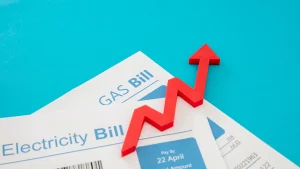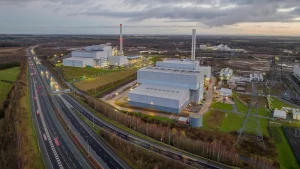Powering Your Business: A Guide to UK Energy Solutions
As a UK business owner, you’re likely seeking sustainable and cost-effective energy solutions. Let’s explore the options available to you, including renewable and non-renewable energy sources.
Renewable Energy: A Sustainable Choice
Renewable energy sources, such as solar, wind, and hydro power, offer a clean and environmentally friendly alternative to traditional fossil fuels. By harnessing the power of nature, businesses can reduce their carbon footprint and contribute to a greener future.
Advantages of Renewable Energy for Commercial Use:
- Cost Savings: While initial investment costs may be higher, long-term savings can be substantial due to lower energy bills and government incentives.
- Environmental Benefits: Reduced greenhouse gas emissions and a positive impact on air quality.
- Energy Security: Less reliance on volatile fossil fuel markets and potential for energy independence.
- Brand Reputation: A strong commitment to sustainability can enhance your brand image and attract eco-conscious customers.
Non-Renewable Energy: Traditional Options
Non-renewable energy sources, such as natural gas and coal, have been the primary energy sources for businesses for many years. While they offer reliable and consistent energy supply, they come with environmental concerns and fluctuating prices.
Choosing the Right Energy Solution for Your Business
When selecting an energy solution, consider the following factors:
- Energy Needs: Assess your business’s energy consumption patterns to determine the most suitable energy source.
- Budget: Evaluate the initial investment costs and long-term savings associated with different options.
- Environmental Goals: Align your energy choices with your sustainability objectives.
- Government Incentives: Take advantage of government grants, subsidies, and tax breaks to offset costs and encourage renewable energy adoption.
By understanding the benefits and drawbacks of renewable and non-renewable energy, you can make informed decisions to power your business sustainably. By embracing renewable energy solutions, you can contribute to a cleaner future while reaping the rewards of cost savings and enhanced brand reputation.
Renewable vs. Non-Renewable Energy: Powering Your Business Sustainably
As a business owner, you’re likely considering the most sustainable and cost-effective energy solutions for your operations. This decision often boils down to choosing between renewable and non-renewable energy sources. Let’s dive into the key differences and benefits of each.
Renewable Energy: A Sustainable Choice
Renewable energy sources, such as solar, wind, and hydro power, harness the power of nature to generate electricity. These sources are sustainable, meaning they can be replenished naturally, and they produce significantly fewer greenhouse gas emissions than traditional fossil fuels.
Advantages of Renewable Energy for Commercial Use:
- Cost Savings: While initial investment costs may be higher, long-term savings can be substantial due to lower energy bills and government incentives.
- Environmental Benefits: Reduced greenhouse gas emissions and a positive impact on air quality.
- Energy Security: Less reliance on volatile fossil fuel markets and potential for energy independence.
- Brand Reputation: A strong commitment to sustainability can enhance your brand image and attract eco-conscious customers.
Non-Renewable Energy: Traditional Options
Non-renewable energy sources, like coal, oil, and natural gas, are finite resources that take millions of years to form. While they have been the primary energy sources for centuries, their environmental impact and fluctuating prices make them less attractive options for many businesses.
Making the Right Choice for Your Business
When selecting an energy solution, consider the following factors:
- Energy Needs: Assess your business’s energy consumption patterns to determine the most suitable energy source.
- Budget: Evaluate the initial investment costs and long-term savings associated with different options.
- Environmental Goals: Align your energy choices with your sustainability objectives.
- Government Incentives: Take advantage of government grants, subsidies, and tax breaks to offset costs and encourage renewable energy adoption.
By understanding the benefits and drawbacks of renewable and non-renewable energy, you can make informed decisions to power your business sustainably. By embracing renewable energy solutions, you can contribute to a cleaner future while reaping the rewards of cost savings and enhanced brand reputation.
Renewable Energy: A Sustainable Powerhouse for Businesses
Renewable energy sources, such as solar, wind, and hydro power, are becoming increasingly popular for commercial use. By harnessing the power of nature, businesses can reap a multitude of benefits, both environmental and economic. Let’s explore the advantages of renewable energy for commercial applications.
Environmental Benefits
- Reduced Carbon Footprint: Renewable energy sources produce significantly fewer greenhouse gas emissions compared to fossil fuels, helping to mitigate climate change.
- Improved Air Quality: By reducing reliance on fossil fuels, businesses can contribute to cleaner air and better public health.
- Preservation of Natural Resources: Renewable energy sources help conserve finite natural resources like oil and gas.
Economic Advantages
- Long-Term Cost Savings: While initial investment costs may be higher, renewable energy systems often have lower operating costs over time.
- Energy Independence: By generating their own power, businesses can reduce reliance on traditional energy suppliers and potential price fluctuations.
- Government Incentives: Many governments offer incentives and subsidies to encourage the adoption of renewable energy, further reducing costs.
- Enhanced Brand Reputation: A commitment to renewable energy can improve a company’s brand image and attract eco-conscious customers.
Practical Applications
- Solar Power: Solar panels can generate electricity to power buildings, lighting, and equipment.
- Wind Power: Wind turbines can harness wind energy to produce electricity, especially in areas with consistent wind patterns.
- Hydro Power: Hydropower plants utilize the kinetic energy of flowing water to generate electricity.
By embracing renewable energy, businesses can contribute to a sustainable future while enjoying significant economic and environmental benefits.





